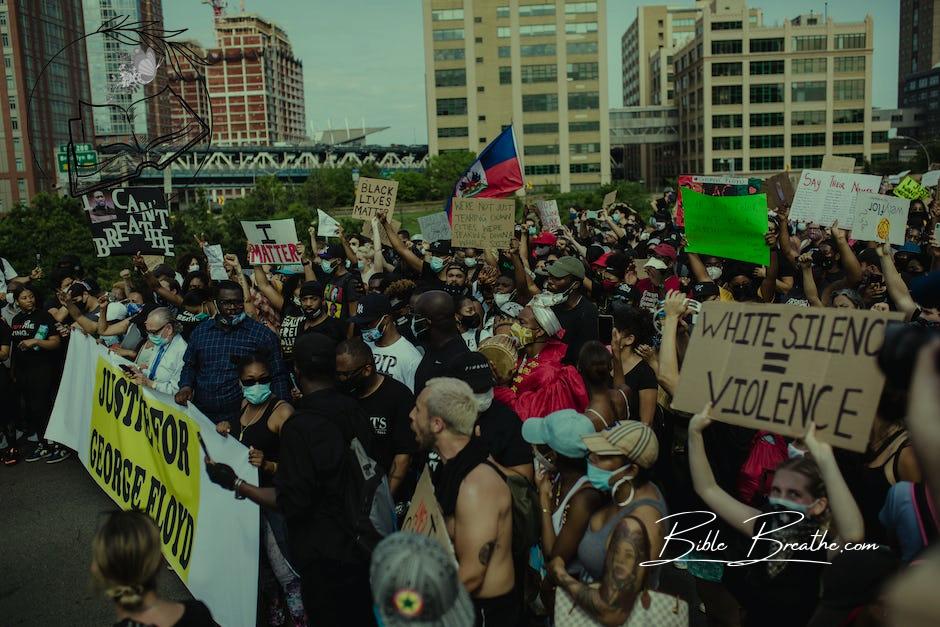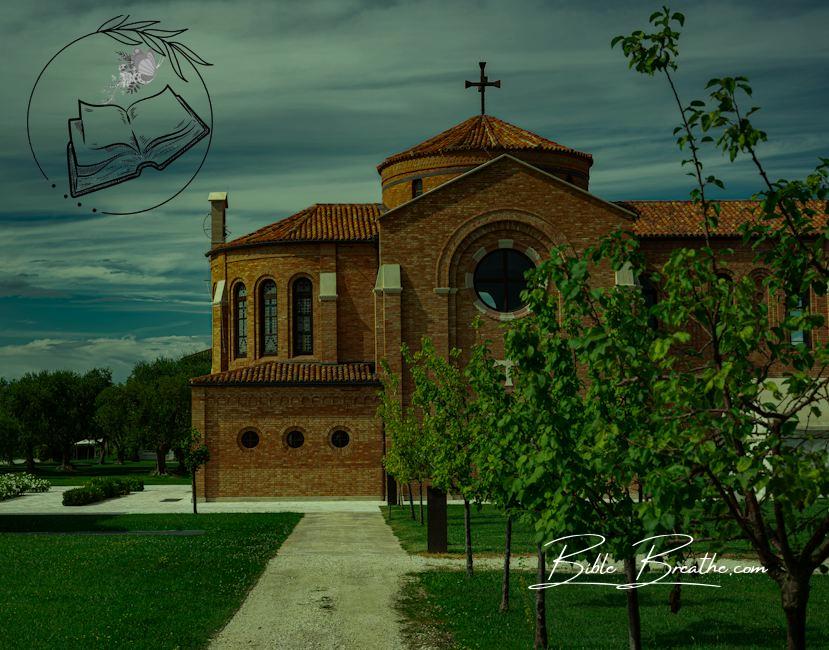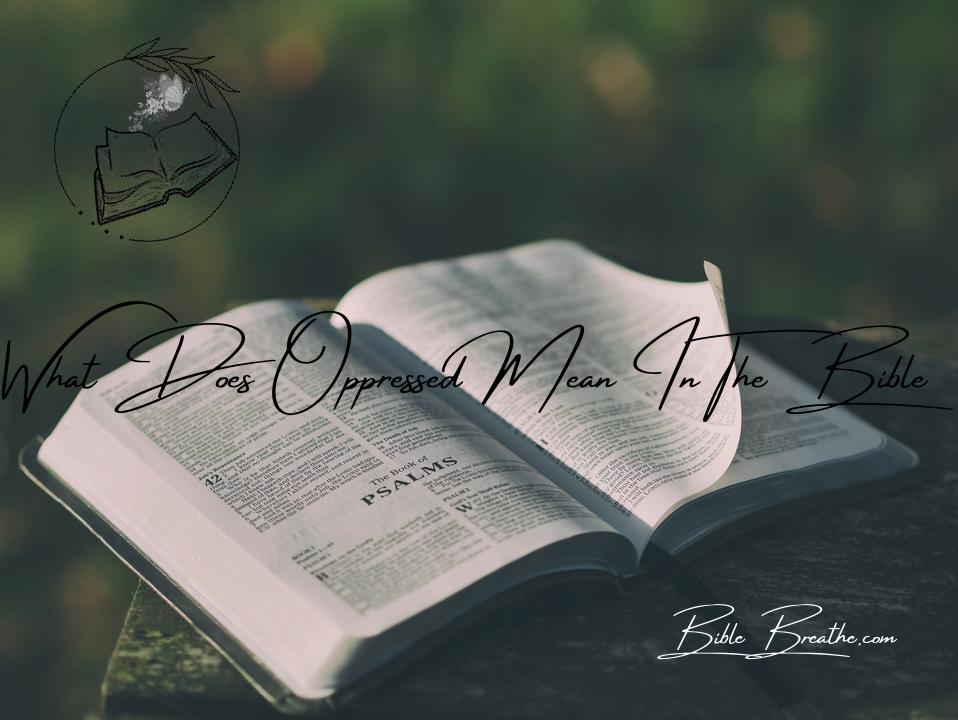What does “oppressed” mean in the Bible?
It’s like being in a wrestling match with life, and you’re the one pinned down.
Now, let’s break it down the way PASTOR MICHAEL TODD would.
In the Bible, oppression is that heavy weight, a real spiritual heavyweight championship, if you will.
It’s not about being possessed by demons, it’s like carrying a backpack full of burdens – mental, emotional, and sometimes physical.
Think of it as a battle between good and evil, where you’re stuck in the middle, fighting for your freedom.
But here’s the deal: the Bible is all about the victory lap.
It’s about learning to break free from that heavyweight and step into the ring with spiritual authority.
It’s like getting a front-row seat to Jesus’ mission, bringing freedom, healing, and restoration to your life.
So, are you ready to throw off that heavyweight and discover the power of spiritual victory?
🥊💪
Key Takeaways
- In the Bible, the term “oppressed” refers to individuals who are subjected to unjust treatment, suffering, or hardship. It encompasses various forms of mistreatment, such as social, economic, or political oppression.
- The biblical understanding of oppression highlights its manifestations throughout the scriptures, where God’s people often faced oppression by foreign powers or oppressive rulers. This theme underscores the importance of justice, mercy, and compassion in God’s teachings.
- The Bible emphasizes that believers have the power and authority, through faith and reliance on God, to overcome oppression. It encourages individuals to seek justice, defend the vulnerable, and resist oppressive forces with righteousness and faith.
- Staying vigilant and guarding against oppressive influences is a key aspect of biblical wisdom. Believers are called to be discerning and recognize the signs of oppression, both in society and in their personal lives. This vigilance enables them to take action against injustice and to advocate for the oppressed.
- The concept of oppression in the Bible underscores the importance of aligning one’s actions with God’s principles of love, justice, and compassion. It serves as a reminder of the responsibility to stand against oppression and to work towards a world where all individuals are treated with dignity and fairness.
Unpacking the Meaning of “Oppressed” in the Bible

Photo modified by BibleBreathe.com. Original photo by Anna Shvets on Pexels
Have you ever stopped to think about what it really means to be “oppressed” in the Bible?
It’s not just a casual word; it carries profound spiritual weight.
Let’s take a journey together and peel back the layers of this concept, step by step.
Grasping the Essence of Oppression
Oppression, in the context of the Bible, isn’t just an everyday struggle or a stroke of bad luck.
It’s more like a clash between light and darkness, a showdown between good and evil.
It’s that heavy feeling of being burdened, not just by life’s challenges, but by something deeper—spiritual forces at work.
“For we aren’t fighting against flesh-and-blood enemies, but against evil rulers and authorities of the unseen world, against mighty powers in this dark world, and against evil spirits in the heavenly places.” – Ephesians 6:12 (KJV)
Oppression vs. Being Possessed by Evil Spirits
To grasp oppression fully, it’s essential to distinguish it from being possessed by malevolent spirits.
When someone is possessed, they’re entirely under the control of dark entities.
On the other hand, oppression is more like an unwelcome guest in your life; it disrupts your peace, but it doesn’t take ownership of you.
Recognizing the Signs of Oppression
Oppression often shows itself as a spiritual assault, especially on your thoughts.
It’s like a shadow that looms over your mind, filling it with negativity, doubt, and despair.
Imagine it as an unrelenting storm trying to drown out your inner peace.
The Weight of Life’s Challenges
Picture this: you’re carrying a heavy backpack filled with worries, fears, and troubles.
That’s akin to what oppression can feel like—whether it’s a mental or physical burden.
It’s like attempting to climb a steep hill with an enormous load on your back.
But here’s the good news:
Come to me, all of you who are weary and carry heavy burdens, and I will give you rest.” – Matthew 11:28 (KJV)
Discovering Liberation from Oppression

Photo modified by BibleBreathe.com. Original photo by Life Matters on Pexels
In the Bible, there’s a pathway to freedom from oppression.
It involves engaging in spiritual warfare, prayer, and seeking divine intervention.
It’s about harnessing the power and authority granted to us through our faith.
“The act of praising can shatter the chains of oppression, and with spiritual authority, we can find deliverance and healing.”
So, when you come across the term “oppressed” in the Bible, remember that it signifies more than just a tough situation.
It’s a call to action, a reminder of the inner battle, and the incredible strength of faith to prevail.
Unpacking “Oppressed” in the Bible: Breaking Free from the Chains

Photo modified by BibleBreathe.com. Original photo by RDNE Stock project on Pexels
In the grand narrative of the Bible, some words carry profound weight, and “oppressed” is undoubtedly one of them.
But what does it really mean in the context of the Good Book, and how can we relate it to our lives today?
Let’s take a deep dive together.
Oppressed: A Heavy Burden
Imagine “oppressed” as a chain, not just any chain, but a heavy one that binds a person in the clutches of adversity, torment, or even spiritual bondage.
It’s not a light discomfort; it’s a weighty burden that one must bear.
“The Spirit of the Lord is upon me, because he hath anointed me to preach the gospel to the poor; he hath sent me to heal the brokenhearted, to preach deliverance to the captives, and recovering of sight to the blind, to set at liberty them that are bruised.” – Luke 4:18 (KJV)
In Luke 13:10-11, we come across a powerful biblical example of oppression.
There, we meet a woman who had carried the heavy yoke of oppression due to a physical condition for eighteen long years.
Just imagine the weight of that burden!
She was bent over and unable to stand upright.
But then, something miraculous unfolds.
Jesus, in His boundless compassion and authority, heals her.
He lifts the heavy weight of her oppression, granting her freedom and restoring her dignity.
Differentiating Oppression from Possession
You might be wondering, what sets apart oppression from possession?
It’s a valid question, and the Bible provides insight.
Oppression, akin to the woman’s physical condition, is like a weighty cloak that hinders, but it doesn’t necessarily mean someone is possessed by evil spirits.
It’s a burden that impacts the mind, body, or spirit, often stemming from adverse circumstances, mental struggles, or external influences.
“For we wrestle not against flesh and blood, but against principalities, against powers, against the rulers of the darkness of this world, against spiritual wickedness in high places.” – Ephesians 6:12 (KJV)
Demonic possession, on the other hand, involves malevolent spirits taking control of a person.
It’s a deeper level of spiritual warfare.
Oppression might be akin to a thief at the door, whereas possession is the intruder breaking in.
Have you ever felt the weight of oppression in your own life, a heaviness that seems to drag you down?
It might not be demonic possession, but it’s a burden that warrants attention and prayer for deliverance.
The Liberation Power
In the face of oppression, there is hope.
The Bible imparts wisdom about the authority of deliverance, the potency of prayer, and the strength of offering praise.
Just as Jesus brought healing to the oppressed woman, He can bring restoration and freedom into our lives.
So, as you explore the profound teachings of the Bible on oppression, keep in mind that you don’t have to shoulder your burdens alone.
Seek spiritual guidance, embrace the power of prayer, and remember that just as Jesus proclaimed liberty to those held captive, He can bring deliverance to your life as well.
Within the pages of the Bible, the stories of oppression and liberation echo through time, offering us guidance and hope in our contemporary struggles.
Unveiling the Meaning of “Oppressed” in the Bible

Photo modified by BibleBreathe.com. Original photo by Castorly Stock on Pexels
Hey there, family!
PASTOR MICHAEL TODD here, and today we’re diving deep into a word that can sometimes leave us scratching our heads – “oppressed.”
But don’t worry, we’re about to unravel its secrets and understand what it means in the Bible.
The Sneaky Invaders: How Evil Spirits Find Their Way In
Now, in the spiritual realm, there’s a battle raging, and it’s not your typical showdown.
Evil spirits, those dark forces that seek to mess with our lives, they’re like uninvited guests trying to crash the party.
Just like a thief, their mission is clear: “to steal, and to kill, and to destroy.”
Sounds heavy, right?
It is.
Through the TV Screen: Media, Life, and Negative Vibes
Imagine our lives like a house, and the evil spirits want to get inside.
One of the ways they sneak in is through what we watch and listen to.
Your TV, the internet, all those entertainment choices – they’re like doors.
Are you letting negativity and darkness through those doors?
Think of it as picking your friends wisely; you want the good ones and not the bad influences.
Life’s challenges can also create openings for these dark forces.
When you’re down, vulnerable, or going through a tough time, they see it as an opportunity to strike.
So, in those moments, seek divine protection.
It’s like locking your doors when you know there’s a thief in the neighborhood.
Negative influences, like unhealthy friendships or bad company, can act as highways for oppression.
Your friends are like that inner circle; they either lift you up or bring you down.
Choose your circle wisely.
The Mirror Test: Personal Choices and Actions
The Bible isn’t all about pointing fingers; it’s about accountability.
It tells us to look in the mirror and reflect on our choices and actions.
Every choice you make, every move you take – they can either strengthen your spiritual armor or leave you vulnerable.
It’s like tending to a garden; ignore it, and weeds take over.
But if you care for it, you’ll have a beautiful harvest.
The Battle Within: Fighting Oppression
Oppression isn’t just a battle with external forces; it’s also a struggle within ourselves.
It’s like a wrestling match between what you want, your free will, and those spiritual forces trying to push you around.
But don’t forget, “Greater is He that is in you than he that is in the world.”
You have the authority and power to break free from oppression, find restoration, and freedom.
“The Spirit of the Lord is upon me because he hath anointed me to preach the gospel to the poor; he hath sent me to heal the brokenhearted, to preach deliverance to the captives, and recovering of sight to the blind, to set at liberty them that are bruised.” – Luke 4:18 (KJV)
In this journey through the meaning of “oppressed” in the Bible, we’ve seen the challenges and the promise of deliverance.
It’s a real battle, but victory is yours through your spiritual authority and a deep connection with the Divine.
Keep pushing forward, and remember, you’re never alone in this fight!
Unpacking “Oppressed” in the Biblical Context: Breaking Chains and Bringing Hope

Photo modified by BibleBreathe.com. Original photo by Life Matters on Pexels
In the tapestry of the Bible, the word “oppressed” holds profound meaning, shedding light on the very mission of Jesus and the empowerment of believers.
Let’s dive deep into the biblical concept of oppression and see how it relates to our lives today.
The Purpose of Jesus’ Arrival: Crushing Oppression
To truly grasp the essence of “oppressed” in the Bible, we must first understand Jesus’ mission.
As written, “The Son of God appeared for this purpose, to destroy the works of the devil” (1 John 3:8).
Picture Jesus as a mighty warrior, stepping onto the battlefield of human suffering, ready to confront the forces of darkness.
The thief cometh not, but for to steal, and to kill, and to destroy: I am come that they might have life, and that they might have it more abundantly.” – John 10:10 (KJV)
Here, Jesus contrasts His mission with the destructive intent of the devil.
He comes to bring life, abundance, and deliverance to those burdened by oppression.
Just as a skilled surgeon removes a malignant tumor, Jesus seeks to excise the oppression afflicting the human soul.
Authority and Power Over Oppression
Now, imagine this: You, as a believer, are bestowed with a divine mantle of authority and power over oppression.
In Luke 10:19, Jesus declares, “Behold, I give unto you power to tread on serpents and scorpions, and over all the power of the enemy: and nothing shall by any means hurt you.”
It’s like giving a security guard the keys to a fortress.
“For though we walk in the flesh, we do not war after the flesh: For the weapons of our warfare are not carnal, but mighty through God to the pulling down of strongholds.” – 2 Corinthians 10:3-4 (KJV)
This authority isn’t just symbolic; it’s tangible in the realm of spiritual warfare.
It empowers believers to stand against spiritual attacks, mental burdens, and adverse conditions.
It’s like having a shield that can deflect the fiery darts of oppression.
Embracing Deliverance and Restoration
Have you ever felt the weight of oppression in your own life, a heaviness that seems unshakable?
In those moments, turn to the teachings of the Bible for guidance and assurance.
Deliverance, healing, and restoration are not distant promises but accessible realities.
Just as Jesus liberated the oppressed during His earthly ministry, His mission continues through believers like you and me.
We have the authority, the power, and the spiritual weaponry to combat oppression in all its forms.
So, when you encounter the word “oppressed” in the Bible, remember that it carries a message of hope and empowerment.
It signifies not only the weight of burdens but also the promise of deliverance.
Just as Jesus came to destroy the works of the devil, you are called to stand firm in your spiritual authority and bring freedom to those oppressed by the forces of darkness.
Conquering Oppression: Your Path to Spiritual Freedom

Photo modified by BibleBreathe.com. Original photo by PhotoMIX Company on Pexels
When the heavy cloud of oppression looms over your life, it’s vital to recognize the warning signs and set out on a journey toward liberation.
This spiritual expedition involves grasping the essence of oppression, pinpointing its sources, seeking forgiveness, and harnessing the power of prayer and praise.
Identifying the Telltale Signs
Oppression often disguises itself as a weight on your heart, a burden on your shoulders, or a torment in your thoughts.
Just as a skilled physician diagnoses an ailment through its symptoms, recognizing the signs of oppression is your first step towards healing.
“A man’s spirit can endure sickness, but who can bear a crushed spirit?” – Proverbs 18:14 (KJV)
When you sense a spiritual confinement, when your joy is stolen, and when negativity dominates your thoughts, these are the red flags that oppressive forces are at play.
Unmasking and Uprooting the Sources of Oppression
Imagine your life as a garden.
To nurture beautiful flowers, you must first uproot the weeds.
Likewise, to conquer oppression, you must identify and eliminate the sources that fuel it.
-
Negative Influences: Take a closer look at your surroundings and relationships. Are there individuals or influences in your life that breed negativity? Sometimes, distancing yourself from such influences is the key to breaking free.
-
Confession and Forgiveness: Acknowledging your own mistakes and seeking forgiveness is a potent step. It’s akin to cleansing the slate of your soul, allowing divine light to pierce through the darkness.
If we confess our sins, he is faithful and just to forgive us our sins and to cleanse us from all unrighteousness.” – 1 John 1:9 (KJV)
The Dynamic Duo: Prayer and Praise
Prayer serves as your direct line to the divine—a lifeline in your quest to find deliverance from oppression.
When you pray, you beckon spiritual healing and restoration into your life.
It’s like calling for reinforcements in the midst of a battle.
The prayer of a righteous person has great power as it is working.” – James 5:16 (KJV)
But don’t underestimate the transformative power of praise and worship.
Just as music can uplift your spirits on a gloomy day, praising the Lord can shatter the chains of oppression.
It’s akin to shining a spotlight into the darkest corners of your soul, dispelling the shadows.
Embracing Freedom and Restoration
The journey to conquer oppression ultimately leads to freedom and restoration.
It’s like emerging from a long, dark tunnel into the warm embrace of the sun.
Through prayer, confession, and unwavering faith, you can reclaim your spiritual authority and experience the profound healing that the Bible offers.
“The Spirit of the Lord is upon me because he has anointed me to proclaim good news to the poor. He has sent me to proclaim liberty to the captives and recovering of sight to the blind, to set at liberty those who are oppressed.” – Luke 4:18 (KJV)
So, when you encounter the term “oppressed” in the Bible, remember that it’s not just a word; it’s a roadmap to freedom—a journey of recognition, elimination, and ultimate liberation from the chains of oppression.
Uncovering the Bible’s Insights on Oppression
In the rich tapestry of the Bible, the word “oppressed” weaves a story of struggle, liberation, and the authority of faith.
Let’s journey into some key verses that illuminate this profound concept.
Luke 6:17-18: Healing and Freedom
In Luke 6:17-18, we encounter a scene that echoes the theme of oppression.
Envision a multitude surrounding Jesus, seeking not only physical healing but also deliverance from the chains of mental and spiritual burden.
“And he came down with them, and stood in the plain, and the company of his disciples, and a great multitude of people out of all Judaea and Jerusalem, and from the sea coast of Tyre and Sidon, which came to hear him, and to be healed of their diseases; And they that were vexed with unclean spirits: and they were healed.” – Luke 6:17-18 (KJV)
Here, we witness the compassionate touch of Jesus, who not only restores their physical well-being but also sets them free from the grasp of darkness.
It’s like a skilled rescuer freeing people from the clutches of despair.
Luke 10:19: Authority Over Adversity
Luke 10:19 serves as a beacon of hope for believers.
Jesus grants them authority to tread upon serpents and scorpions, symbolizing the spiritual dangers and oppression we may encounter.
It’s akin to arming a soldier with a potent weapon to fend off an adversary.
“Behold, I give unto you power to tread on serpents and scorpions, and over all the power of the enemy: and nothing shall by any means hurt you.” – Luke 10:19 (KJV)
This verse reminds us that we are not powerless in the face of oppression.
We have been equipped with spiritual authority to stand firm and conquer the forces that seek to oppress us.
Acts 10:38: Jesus’ Mission of Healing and Liberation
Acts 10:38 encapsulates the essence of Jesus’ earthly mission.
He traveled, performing acts of goodness and healing all those oppressed by the devil.
It’s akin to a hero entering a realm of darkness to rescue captives held under a malevolent spell.
“How God anointed Jesus of Nazareth with the Holy Ghost and with power: who went about doing good, and healing all that were oppressed of the devil; for God was with him.” – Acts 10:38 (KJV)
This verse serves as a powerful reminder that Jesus is our deliverer, breaking the chains of oppression and bringing healing to our lives.
1 John 3:8: The Purpose of Jesus’ Arrival
Lastly, 1 John 3:8 unveils the very reason for Jesus’ appearance on earth.
He came to dismantle the works of the devil, including oppression in all its forms.
It’s akin to a divine mission to demolish the strongholds of darkness.
“He that committeth sin is of the devil; for the devil sinneth from the beginning. For this purpose the Son of God was manifested, that he might destroy the works of the devil.” – 1 John 3:8 (KJV)
When we encounter the word “oppressed” in the Bible, we should remember that it signifies not only a burden but also a promise.
It is a promise of deliverance, healing, and the authority we possess as believers to overcome the oppressive forces of this world.
Just as these verses illuminate, Jesus is the ultimate liberator, and through Him, we can find freedom from even the darkest of oppressions.
Frequently Asked Questions (FAQs) About What Does Oppressed Mean In The Bible
What is the difference between oppression and possession in the Bible?
In the Bible, ‘oppression’ refers to the unjust or cruel treatment of others, often by those in power.
‘Possession’ can refer to demonic possession, where individuals are controlled by evil spirits.
Both are addressed in Scripture as matters of concern and deliverance.
How can one identify if they are oppressed?
Identifying oppression involves recognizing systematic, unjust treatment, often seen in denial of rights, discrimination, or mistreatment.
While the Bible doesn’t outline a specific checklist for identifying oppression, it does encourage justice, mercy, and standing up for the oppressed, reflecting moral values.
What are the biblical solutions to oppression?
The Bible advocates for justice, righteousness, and compassion as solutions to oppression.
It encourages fair treatment, defending the marginalized, helping the oppressed, and standing against injustice.
Additionally, promoting love, mercy, and advocating for the rights and dignity of all individuals align with biblical principles to address oppression.

